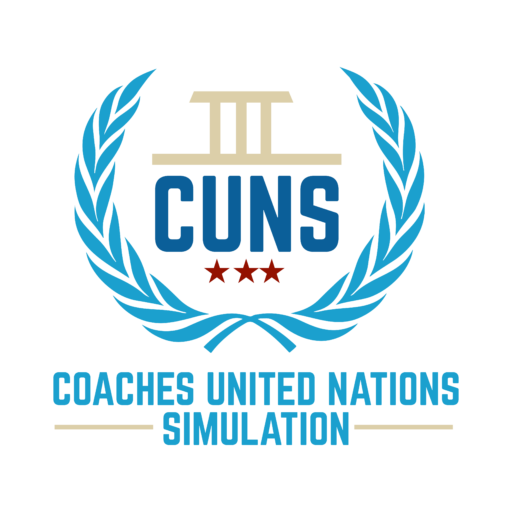TGIMUN 2022
Coaches United Nations Simulations (CUNS) is a platform where diverse young people gather to exchange ideas through constructive debate on thematic issues that are of global concern while acquiring some leadership and diplomacy skills. The essence of the simulation activities includes the ability to use the tools for learning and teaching about political perspectives of different nationalities. During simulations, participants are addressed as ‘honorable delegates’ by multiple speakers. The honorable delegates represent various countries in the United Nations General Assembly or a specialized body of the UN and would share their experiences and knowledge on identified topics.
All around the world, United Nations Simulation conferences organized by student groups or non-governmental organizations give young people the opportunity to play similar roles as delegates at the United Nations. This gives the youths a fair idea on how the UN system works and prepares them for that diplomatic phase of their careers and lives. These conferences are usually held virtually or in person depending on circumstances.
This platform allows the participants to learn the ways and objectives of the United Nations and its multi-stakeholder partners in global development, which include; World Bank, UNDP, WHO, IMF etc. It is essential that young people understand the functions of these international organizations in relation to issues faced by various nations that impede the progress of member states. This simulation platform also presents the right opportunity for youth to take active part in the discussions of agendas put forward during the programs and most importantly, to enhance their communication, critical thinking, negotiation and lobbying skills.
Additionally, participants will improve on the following skills:
- Research: Research is the foundation of participating in a simulation activity. Participants will be engaged and tasked to conduct detailed research on a series of topics relevant to the United Nations and the world as a whole. Through this, they get to learn a lot about and appreciate the countries they are assigned to represent.
- Public Speaking: This is an essential skill in simulation activities. Participants will learn how to use structure and technique to enhance their public speaking. They will also learn how to engage and interact diplomatically by employing communication skills.
- Negotiation: Participants will learn how to effectively and efficiently debate, negotiate and reach a consensus on burning global issues. This will enable them to employ collaboration efforts to provide solutions to global problems. As such, participants are expected to portray all the political positions and attitudes of the country that they are representing.
Conclusively, the participants will end up being able to do the following:
- Describe relevant historical issues affecting the UN and evaluate its effectiveness;
- Understand and completely utilize the rules of procedure, diplomatic protocols, and negotiation techniques common to UN delegates;
- Outline the procedures and general structures of UN;
- Analyze issues presented before the UN from a delegate’s perspective; and
- Explain the basis, format and teaching methods of Model United Nations Simulations.
Therefore, The Gambia International Model United Nations (TGIMUN) Conference seeks to equip youths to be able to think critically and act in a diplomatic manner, think outside of the box, and conform to international standards of behavior by applying the skills and knowledge acquired from our programs.
Online application is open at www.mycuns.org until October 28, 2022.
